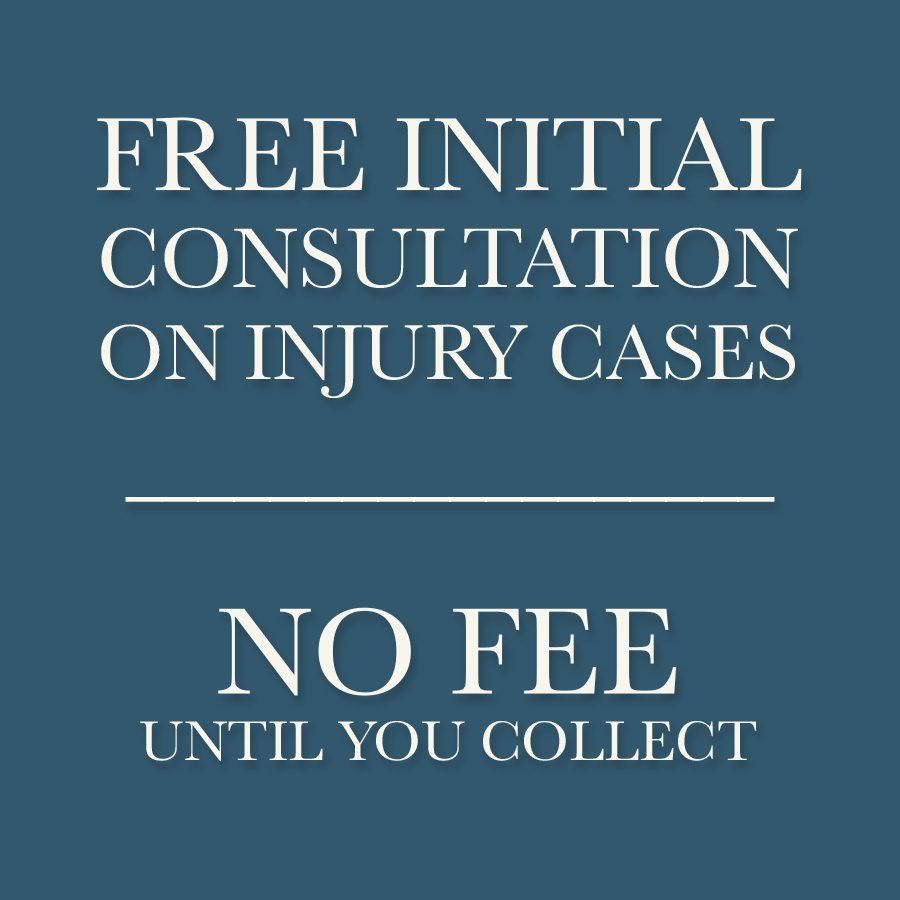Medication-based mistakes in hospitals are becoming more and more common. With medical errors now the third-leading cause of death in the United States, it pays to know your rights as a patient.
When a medical profession makes a serious error that causes injury or even death, it is important to know how to get the compensation you deserve.
Only personal injury lawyers like Veralrud and Fowler have the knowledge and experience to navigate the complex world of medication-based malpractice claims.
Legal Duties of Prescribers
The law dictates medical service providers assess three factors before prescribing any medication:
The first is the relative benefits and risks of the medication in light of the patient’s overall health. Medications can have complex interactions with body systems. The same chemical properties that allow drugs to treat disease can also have other effects on the body.
Some of these effects might be benign; others might ever exacerbate existing health concerns. Your prescriber is trained to assess the overall health and fitness of their patients before recommending a course of treatment.
The first step to creating a treatment plan is this overall assessment, which takes into account both the relative benefits and relative risks of any medications prescribed.
The relationship of the prescription to other medications being taken by the patient is the second factor medical service providers assess before prescribing medication.
All drugs are built out of complex chemical compounds that interact both with the patient’s native biology as well as any other foreign chemicals which might be present within the patient’s body.
Despite the message all the television commercials advertising this or that miracle cure to this or disease push, obtaining a prescription is more complex than simply “asking your doctor.”
Depending on what types of medications a patient is already on, a treatment plan must be tailored to avoid any adverse reactions.
Two drugs which operate effectively on their own might counteract one another, or even cause toxicity due to compounds mixing and changing within the body.
Finally, your medical service provider must assess the medication’s known side-effects. Though we might be misled about the ease of obtaining a prescription by television commercials, we have no such excuse when it comes to medication side-effects.
You will notice that most of these commercials spend an inordinate amount of time listing risk factors associated with the drug in question, often over inspiring music and dreamy visuals.
Legally, drug manufacturers are required to disclose all this information unambiguously in any advertising material they produce. This is because there are very few prescription drugs which effect the body positively without also changing other body systems.
Your medical service provider should be well-versed on the side-effects on any prescribed drug. Even with the plethora of information available on television and the internet, the responsibility for making good drug choices does not rest on the end consumer.
Years of training and practical experience inform your medical service provider’s prescription drug plans.
With the risks associated with drug side-effects, not to mention the vast library of drugs available in the modern world, the average patient must trust their prescriber to do the hard work of researching and implementing their treatment plan.
Failure to provide adequate care in any of these areas breaks the law, endangers patients, and poses significant financial risk to any negligent caregiver’s employer.
Those effected by medication mistakes might suffer anything from an annoying rash to permanent disability to death. Prescription medications are serious business, and when errors occur, the consequences can be dire.
Seeking compensation with a Eugene attorney isn’t just about making you whole. It’s about holding doctors and health care providers responsible for the care they give all their patients.
Possible Mistakes
Even if your prescriber has assessed the legally-required factors we have just discussed, there are still other ways medication mistakes can happen.
Filling the prescription requires reading the prescription correctly, dispensing the correct medication, and including the correct dosage instructions on the prescription label. Even small mistakes in any of these areas can lead to big problems.
Thanks to the fact that prescription medication fulfilment and dispersal is a multi-stage process with many hands involved, the possibility of a mistake creeping in at any stage in the process is all too real.
Things can become even more dicey if the prescription must be filled at a compounding pharmacy. At a compounding pharmacy, pharmacists create patient-specific medications according to very specific direction from your medical service provider.
Even small mistakes in filling a prescription at a compounding pharmacy can lead to big problems down the road.
Medication Administration problems
Some medications are not administered by patients themselves. Even if the provider who wrote the prescription and the pharmacist who filled it did their jobs, errors can still occur in the administration of medication.
Any medication administered by any route besides oral ingestion carries increased risk of complications. The most common non-oral modes of administration include eye drops, nose drops, ear drops, topical (absorbed through the skin), injections, and suppositories.
These methods of administration can create conditions conducive to traumatic injury or infection. A medication administered through an improper route can also cause serious problems.
An oral medication taken as a suppository, for instance, will be absorbed straight into the bloodstream through the mucus membrane, bypassing the filter systems of the body. Taking the wrong drug in this way could have consequences ranging from annoying to fatal.
A drug prescribed with inaccurate administration protocol is just as dangerous as a drug prescribed without checking drug interactions or a drug prescribed without an adequate medical history.
Your Responsibilities
When medical professionals fail at their legal and ethical duties, patients have recourse through medical malpractice lawsuits. Patients who feel that they have been wronged by a medical professional or professionals need to show they fulfilled all their responsibilities as patients.
In cases where the patient self- administers medication, it is imperative that the patient read and follow all dosage instructions and requirements.
Using more or less of a prescribed medication than instructed or not taking the medication for the term required places liability for a medication mistake on the patient.
This shared responsibility forms the core of our medication dispersal system in our country, and carries risks on both sides.
A patient who believes they were not properly warned about drug interactions or side effects must show that they provided the physician prescribing a drug with all pertinent information about any current medications or pre-existing medical issues.
Obviously, this information should make it into a medical history. None the less, if a patient is aware of a factor that would hint at a possible bad interaction or other problem, the onus falls on the patient to disclose that information.
They must also demonstrate that the physician was aware of possible dangers and failed to disclose them.
This can be a tricky proposition; it can be difficult to prove what was going on inside the brain of a medical service provider during the prescription of a drug that would later turn out to have negative interactions.
Even so, your prescriber carries the burden of professional training and certification, whereas the lay patient only has their gut feelings.
If the error came when the prescription was being filled, the patient must show that they had the correct prescription and provided it to the pharmacist. Again, this can be tricky to show.
The often-illegible handwriting of prescribers is a well-worn trope, but it didn’t become that way by accident. When a prescription is hand-written (and especially considering the already-nonsensical words that pharmaceutical companies use to name their drugs), the possibility of an error is increased exponentially.
This is why discussing your treatment plan in detail with your medical service provider is so important. Even though you might be able to secure compensation for a medication-related medical malpractice lawsuit, the fact is money can never replace good health.
Due diligence on the part of a patient having a prescription filled is not just a good idea… it might save your life, your health, or (in the worst-case scenario) your pocketbook. Medical bills are the leading cause of bankruptcy in our country.
Anyone who has received a non-adjusted medical bill for even a minor procedure understands how quickly these bills piling up could put a person under water. For this reason and many more, medical malpractice lawsuits exist.
A Way Forward
Medication errors can be tragic. The effects could be anything from a minor inconvenience to something much worse. In the case of a medication mistake, you need local Eugene attorneys you can trust.
Your medical history and information is very sensitive. Thankfully, medical malpractice lawyers are bound by oath, duty, and law to protect this information for their clients.
When you retain a medical malpractice attorney you do not need to worry about anything other than your recovery. Justice and compensation are important, but at the end of the day none of it matters if you do not have your health.
Veralrud and Fowler are there for you when a medication malpractice issues arise.
WHY CHOOSE US
SWIPE FOR MORE CATEGORIES









